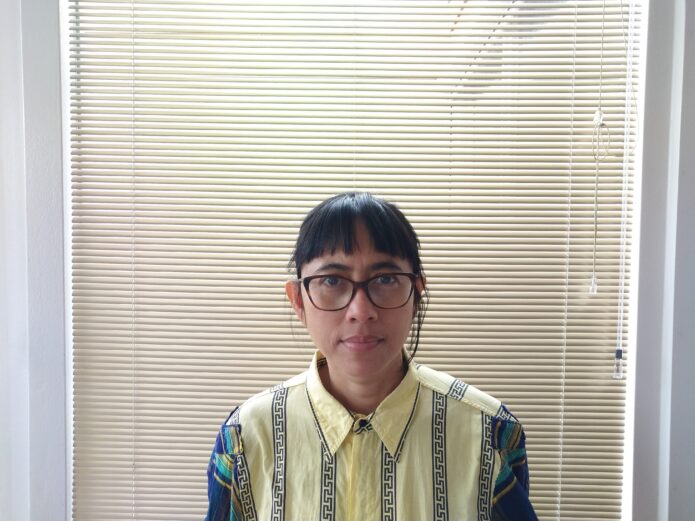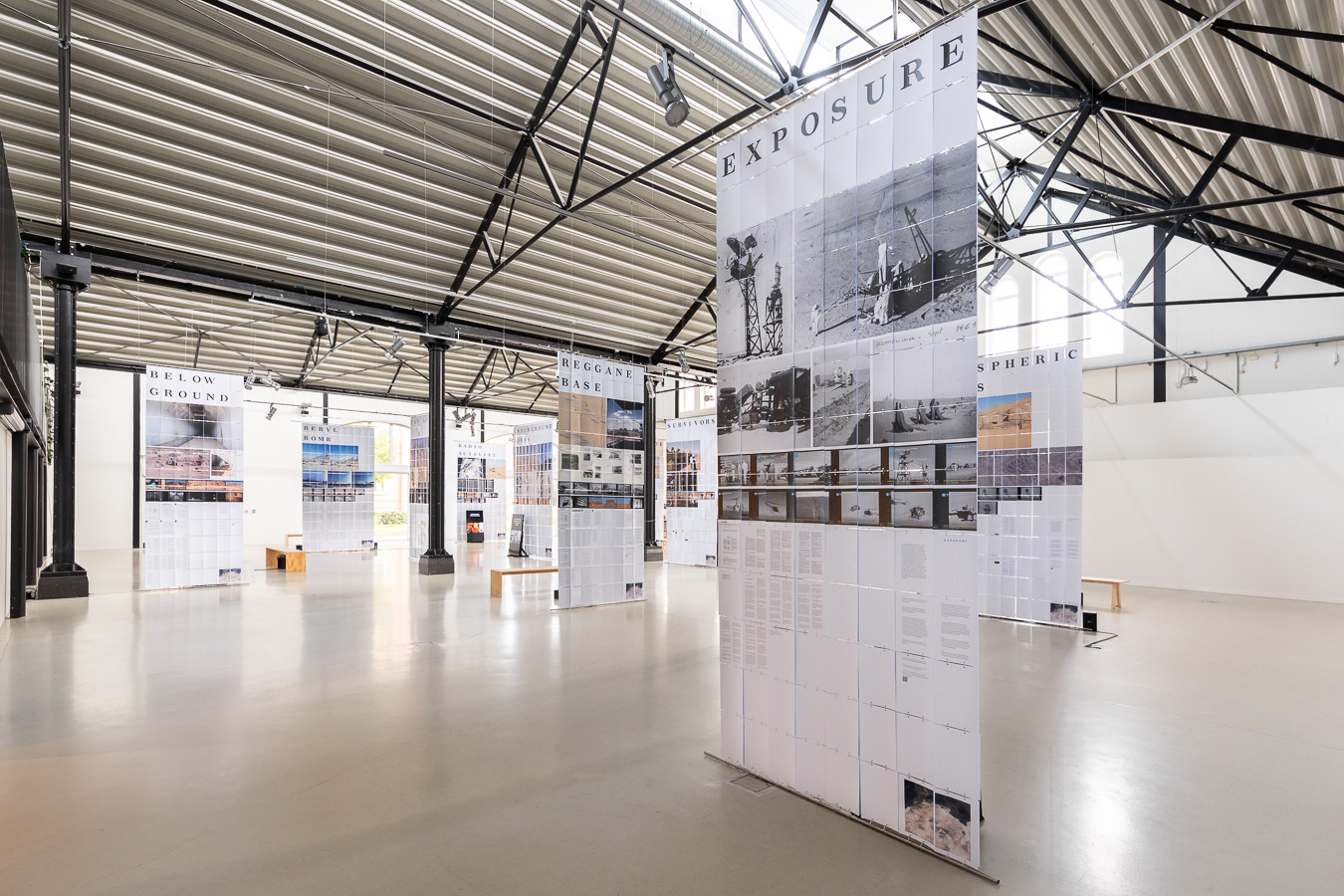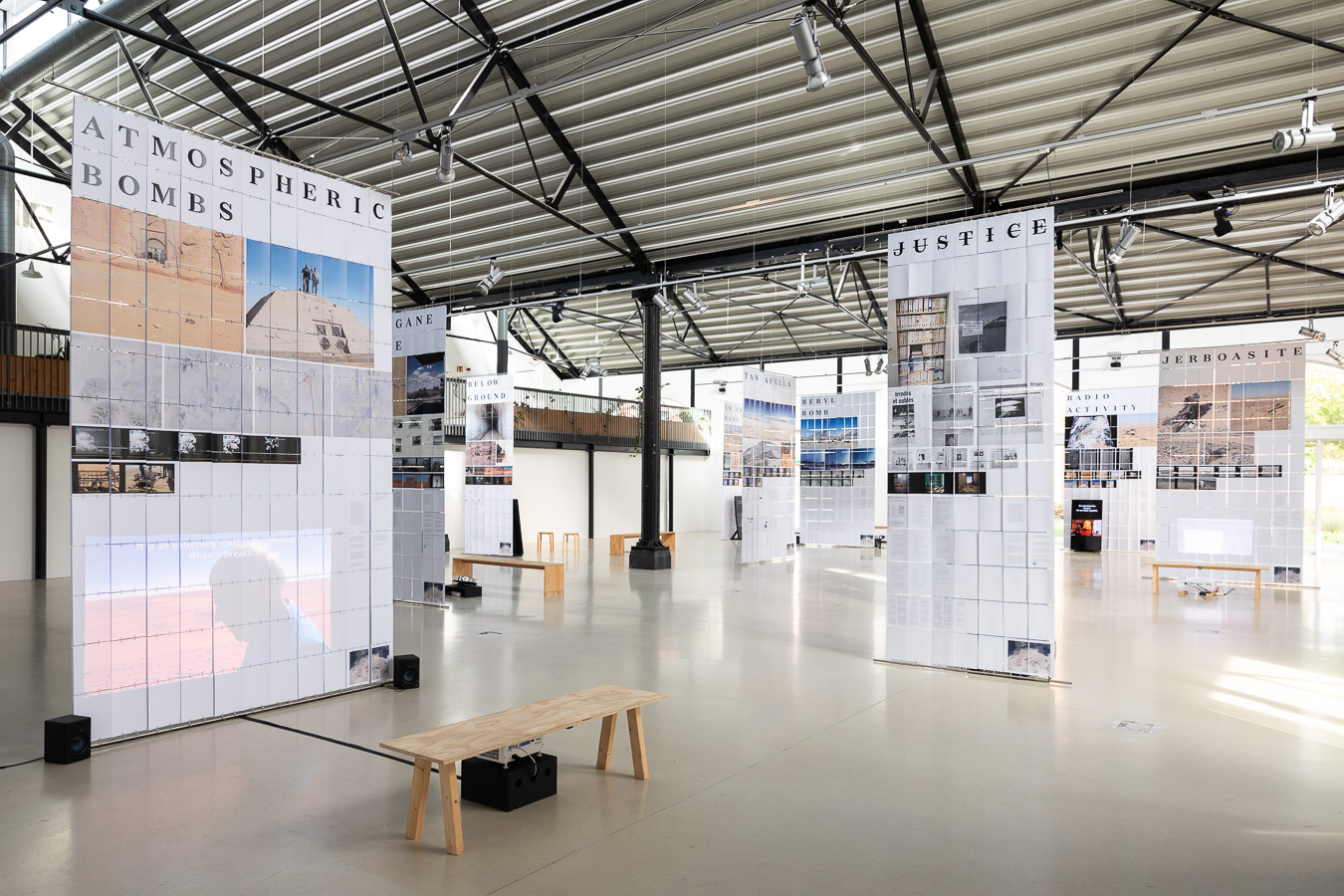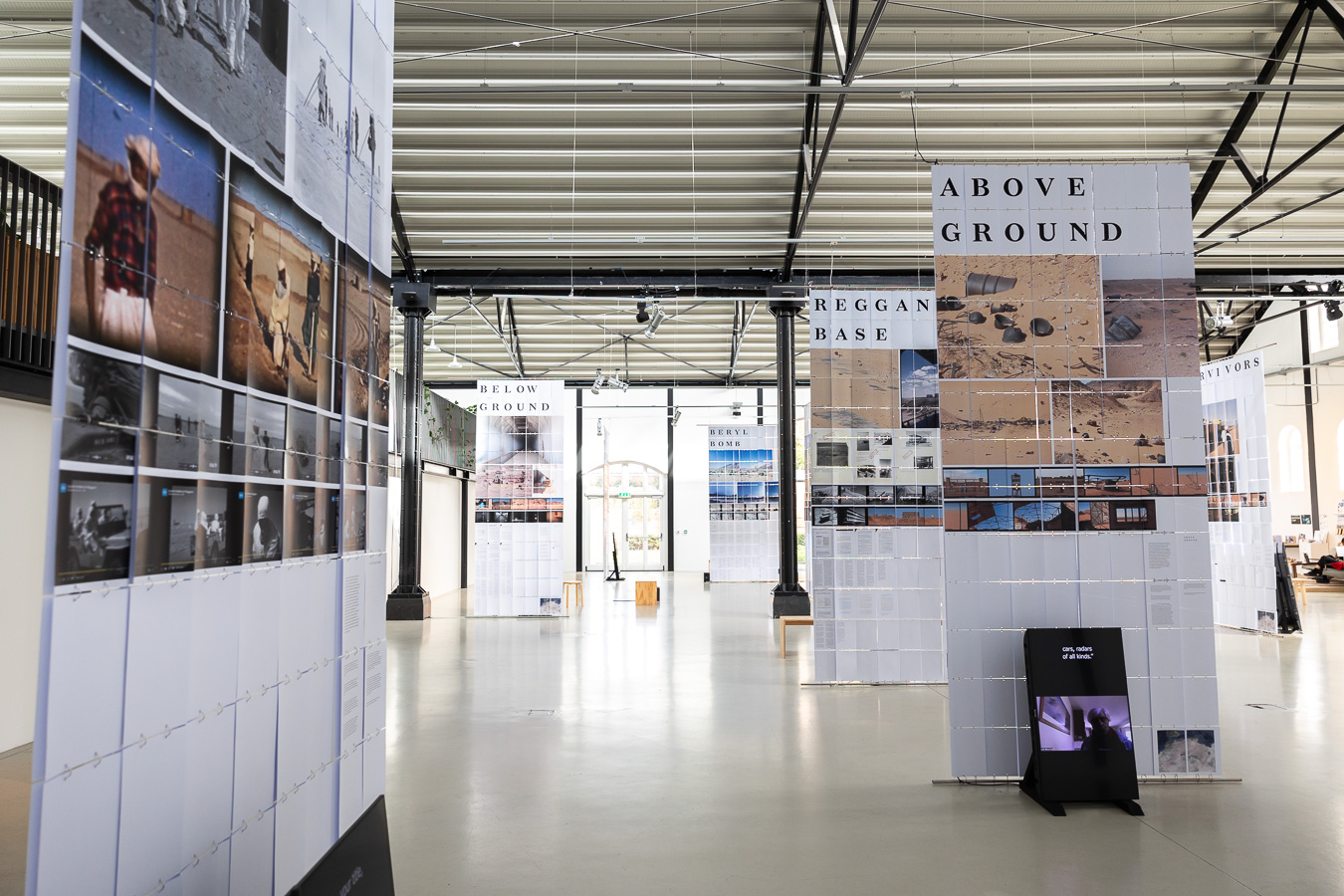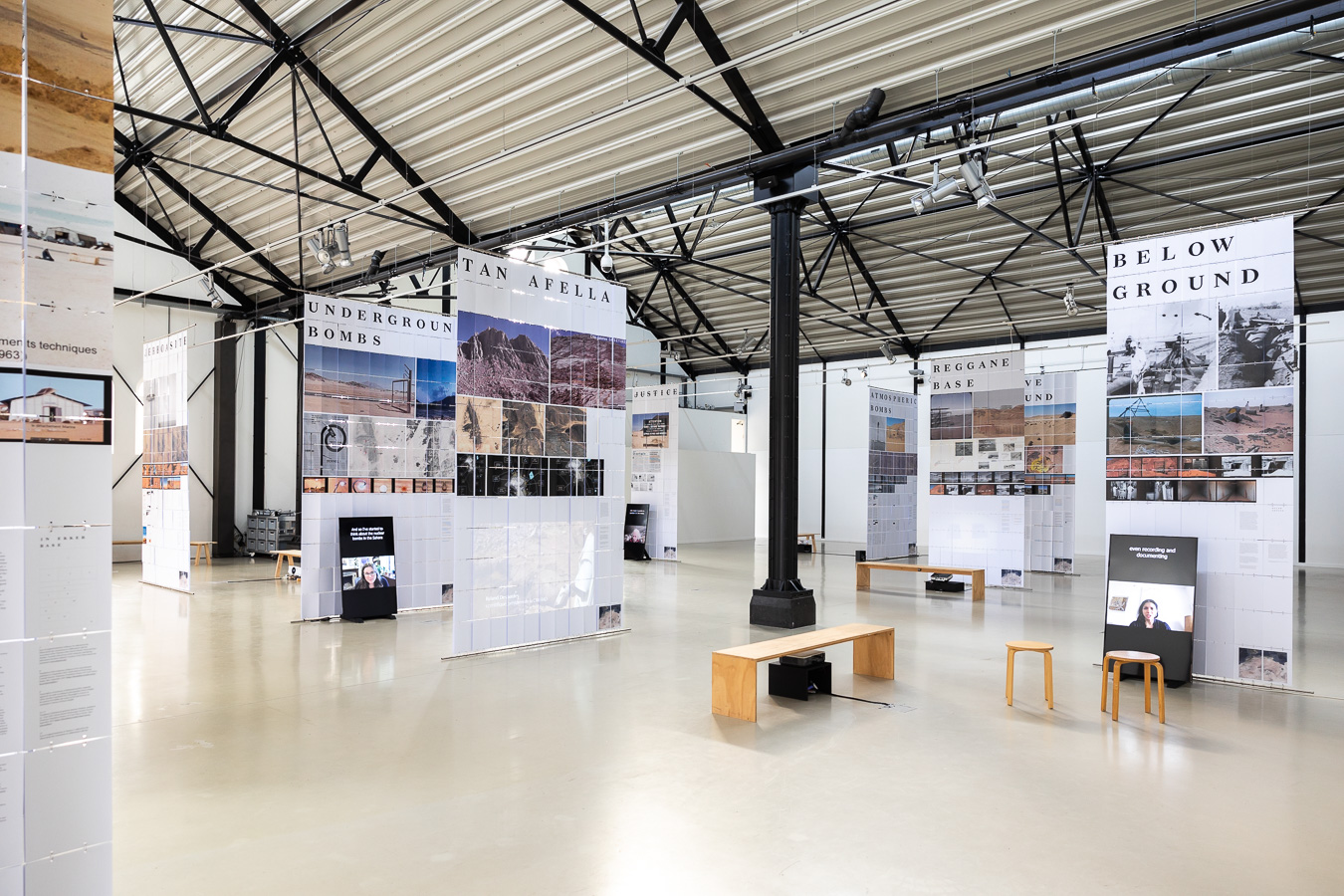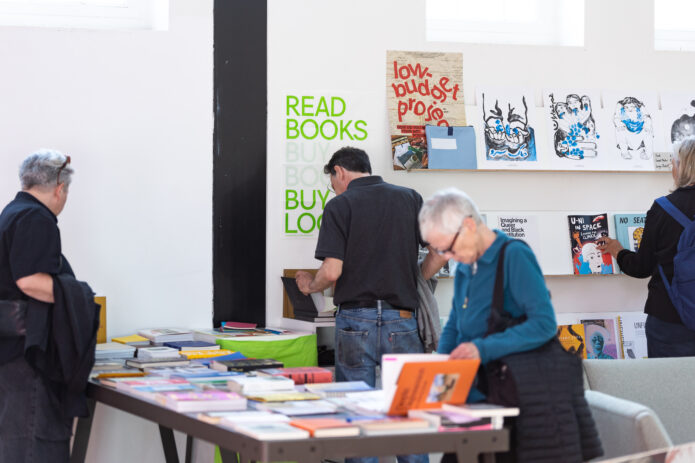14 Jan 2024
15:00 - 17:00
Finissage: Performing Colonial Toxicity
For the finissage of the Performing Colonial Toxicity exhibition, Samia Henni is joined in conversation by fellow If I Can’t Dance researcher Nuraini Juliastuti whose current project Stories of Wound and Wonder departs from the work of Indigenous and rural activist communities in Yogyakarta and Mollo, dwelling upon practices of preservation and transmission in the context of post-colonial Indonesia.
As co-participants in If I Can’t Dance’s Edition IX – Bodies and Technologies biennial programme, Henni and Juliastuti both work through counter-archive practices. In their conversation, they reflect on their respective approaches to anticolonial and decolonial research methods and distribution strategies, as well as the broader thematic of ‘Bodies and Technologies’ in which their projects have been realised. The two are joined by If I Can’t Dance programme curators Sara Giannini and Megan Hoetger.
The conversation also marks the launch of Henni’s exciting new book Colonial Toxicity: Rehearsing French Radioactive Architecture and Landscape in the Sahara (2024), a co-publication of If I Can’t Dance, Framer Framed, and edition fink (Zurich). Conceived as an experimental printed repository in the spirit of Aby Warburg’s Bilderatlas, Colonial Toxicity traces the archival presences of the history of the French nuclear bomb programme in the Algerian Sahara (1960-1966) as they are marked by the offered and the leaked, the gaps, redactions, and low threshold copies. Through the discussion with Juliastuti, Henni offers an introduction to the experimental form of her book, as well as the performative propositions it makes towards speculative history writing and acts of rehearsing.
Order
You can order Colonial Toxicity: Rehearsing French Radioactive Architecture and Landscape in the Sahara through the Framer Framed webshop.
Read more about the exhibition here. We look forward to welcoming you to the finissage of the exhibition!
Credits
Performing Colonial Toxicity is a co-production of Framer Framed and If I Can’t Dance, I Don’t Want To Be Part Of Your Revolution. The project is supported by Swiss Arts Council Pro Helvetia. Special thanks to the Observatoire des armements, Centre de documentation et de recherche sur la paix et les conflits; the Établissement de communication et de production audiovisuelle de la Défense (ECPAD); and to filmmakers Élisabeth Leuvrey and Larbi Benchiha with producer Farid Rezkallah for use of images and film excerpts in the exhibition; as well as to Prof. Dr. Roxanne Panchasi, Simon Fraser University for her support for the Tamasheq-to-French translation of Algerian testimonies.
Framer Framed is supported by the Ministry of Education, Culture and Science; Amsterdam Fund for the Arts; Municipality of Amsterdam; and VriendenLoterij Fonds.
Acknowledgements
Samia Henni would like to extend her most sincere gratitude to Patrice Bouveret and the collaborators and partners of the Observatoire des armements; Larbi Benchiha, Bruno Hadjih, Elisabeth Leuvrey, Farid Rezkallah, as well as to Frédérique Bergholtz, Megan Hoetger, the extended If I Can’t Dance… team (Naomi Collier Broms, Sancha Castro, Anik Fournier, Sara Giannini, Bram Nijssen, Hans Schamlé, and Marcel van den Berg), Framer Framed team, and Swiss Art Council’s Pro Helvetia Foundation for their support of the project.
Deep thanks also go to the interviewees who have generously accepted to share their expertise and experience, including: Larbi Benchiha, Patrice Bouveret, Roland Desbordes, Bruno Hadjih, Gabrielle Hecht, Penelope Harvey, Jill Jarvis, and Roxanne Panchasi, as well as the translator-participants who have committed their time to translating Henni’s selection of testimonies, including: Raoul Audouin, Adel Ben Bella, Omar Berrada, Megan Brown, Séverine Chapelle, Simona Dvorák, Hanieh Fatouree, Alessandro Felicioli, Anik Fournier, Jill Jarvis, Augustin Jomier, Timothy Scott Johnson, Anna Jayne Kimmel, Corentin Lécine, Natasha Llorens, Miriam Matthiesen, Martine Neddam, M’hamed Oualdi, Roxanne Panchasi, and Alice Rougeaux.
And, finally, much appreciation to Marley Jaeda Barnes, Amina Belghiti, Samuel Fuchs, Floriane Germain, François Girard-Meunier, Maxime Groslambert, Pamela Hampton Hunsinger, Megan Gail Mueller, Caroline Ann O’Donnell, Roxanne Panchasi, Georg Rutishauser, Sabine Sarwa, Pascal Schwaighofer, Philip Ursprung, Oliver Wyss, Meejin Yoon, and all those who have over the years contributed to the development of this research and who asked to remain anonymous.
Image credit: Photograph by Bruno Barrillot, the co-founder of the Observatoire des armements in Lyon, France. The images were taken during a visit to France’s nuclear sites in Reggane and In Ekker in the Algerian Sahara, with the filmmaker Larbi Benchiha and his team in November 2007. Courtesy of Observatoire des armements.
Conflict / The living archive / Colonial history / Contested Heritage /
Exhibitions
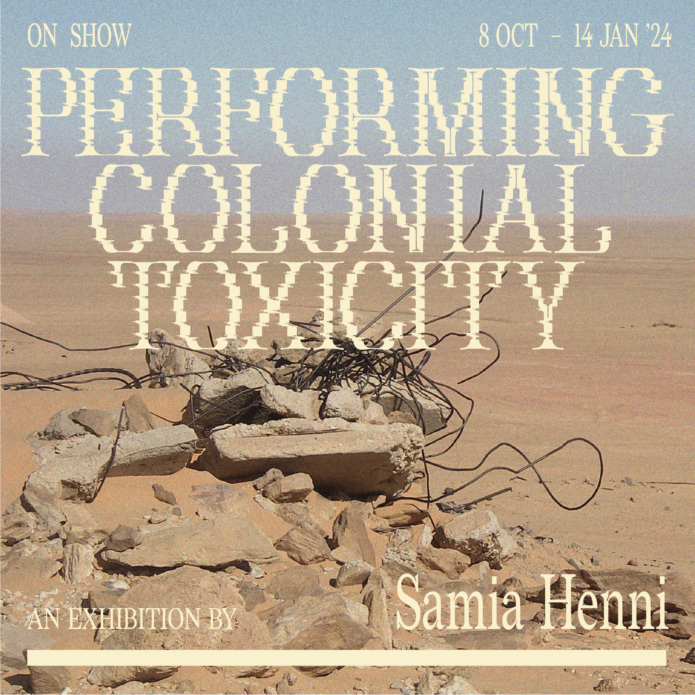
Exhibition: Performing Colonial Toxicity
An exhibition by researcher and architectural historian Samia Henni, in collaboration with If I Can’t Dance, I Don’t Want To Be Part Of Your Revolution
Agenda
Performance Lecture by Samia Henni
In the context of her exhibition 'Performing Colonial Toxicity' now on show at Framer Framed
Network
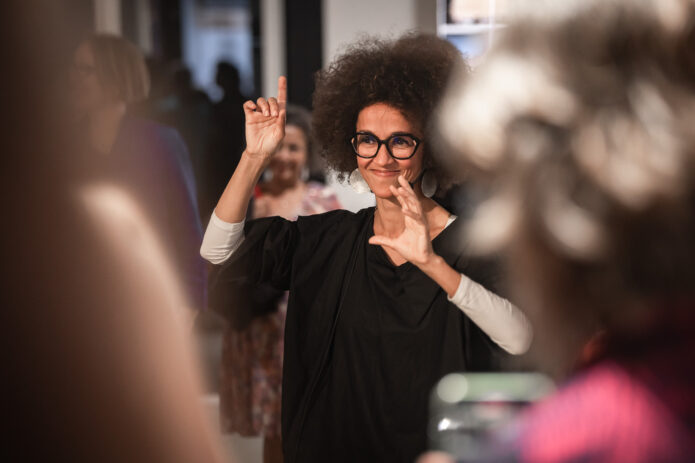
Samia Henni
Architectural historian, Exhibition-maker
